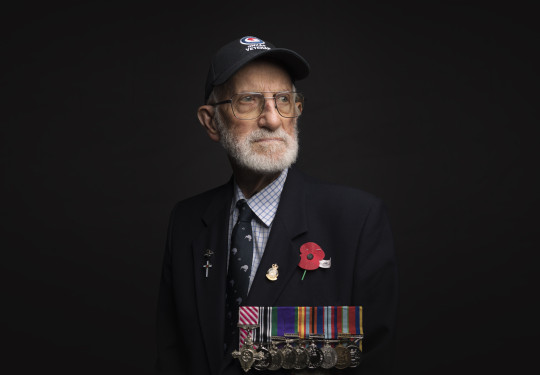RNZAF 85: Flight Lieutenant Jack Hall
Served 1946-1967
As the dust settled on World War II, 17-year-old Jack Hall joined the Air Force. He had spent his youth watching Tiger Moths from Taieri fly over his home town of Lawrence, in Otago, training young men who would be sent to battle.
03 April, 2022
I knew quite a few of the local boys who joined the Air Force. None of them came home from the war unfortunately.”
Joining the Air Force straight after a war meant Mr Hall saw a shift in morale of colleagues who had joined before the end of the fighting.
“Most of the people who were there had trained to go to war and the war stopped and their whole future collapsed in front of them – especially aircrew. They had trained and were naturally keen to get into action and suddenly it had all gone.
“Everything was run down badly because the Air Force had lost its raison d’etre, so it was a very flat situation – there was no future mapped out. They were mostly trying to get their people home from overseas. The Air Force didn’t have a future in the eyes of the government, because what could you do with an Air Force if there was no fighting going on? Thousands and thousands of personnel left.”
Mr Hall kicked off his career in the post-war service by not getting what he was hoping for.
“I wanted to be an engine mechanic and the lying bastards said to me there was no course available and I would have to wait a few months for it to be available, but they would put me on signals. Well they still haven’t contacted me about it yet, so I guess it didn’t come along.”
As it turned out Mr Hall enjoyed the signals trade and was posted to Fiji’s Laucala Bay base for 18 months in 1947 and 1948. When he came home he was posted to No. 41 Squadron with Bristol Freighters, Hastings and Douglas C-47 Dakotas.
In 1953 he was deployed twice to the United Kingdom, taking a much longer route in a Hastings than would be needed with our long-haul aircraft now. The flight to the United Kingdom went via Australia, Singapore, India, Pakistan, Iraq, Cyprus and Malta.
“It’s not generally known in New Zealand, but we took a contingent of New Zealand Police to Cyprus because the Turkish and Greeks were having a bit of a discussion about who owned Cyprus. They had an international police force keeping them apart. We dropped the Police off and carried on to the UK to bring back ex-military personnel who were recruited into the RNZAF.
“My wife came out from the UK in 1952 on a similar deal. She ended up flying in a flying boat to Wellington and on a steamer to Lyttelton and on a truck to Wigram. When she saw me lined up to have my breakfast, she thought, ‘That’s the man I’m going to marry’. She didn’t tell me until a couple of years later. I was very, very lucky – she’s an amazing person.”
In 1954 Mr Hall applied to remuster to be a pilot, but missed out for reasons he’s never been clear on.
“I passed my hearing and eye tests, but after a short interview I was told no. So I ended up retraining as a navigator and stayed in that trade until 1967 when I retired.”
He fondly remembered an avalanche of resupply flights to places like Malaya, Borneo and Vietnam, during the war, with No. 41 Squadron while deployed to Singapore. However, he faced his own personal tragedy during the posting when a friend of his was killed after the pilot flew into a mountain on the way to Kuala Lumpur on one of the supply missions.
It was overseas he developed a love for the Bristol Freighter transport aircraft.
“I thought the Bristol Freighters were wonderful aircraft, absolutely wonderful. Two thousand horsepower each side and you could climb from 1,500 feet to 3,000 feet on one engine. I’ll never hear anybody say anything wrong about Bristol Freighters, if they do, it means they weren’t operating it to its capacity. I did 5,000 flying hours in the Freighter, which is pretty rare.”
But the highlight of his career was as the navigator on board a Lancaster as it flew a three-hour show-the-plane flight around Auckland. The aircraft is now on display at Motat.
“I’m possibly the last serving Kiwi to crew on a Lancaster.”
In 1967, Mr Hall was awarded the Air Force Cross and he said looking back, his lasting impression of the service was the people he worked alongside.
“The companionship, the standard of discipline amongst people in the forces, the fact that everybody’s honest and polite and they are people you would like to be with.”
